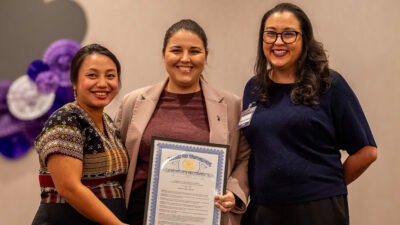In Brief
The Center for Employment Opportunities, a WKKF grantee, released a new report showing significant reductions in parole violations among formerly incarcerated people who participated in their Returning Citizen Stimulus (RCS) program. The program provided up to $2,750 in three payments to formerly incarcerated people in the 60 days after release upon reaching personal milestones like writing a resume. The independent impact study showed that among those who participated in RCS, parole violations were reduced by over 41% within the first six months post-release and violent parole violations dropped by 64% at the 12-month mark – results that last long past the 60-day payment period. The program included 10,000 people in 28 cities nationwide.
Why it Matters
The time immediately after release is particularly vulnerable for those returning from incarceration. Forty percent of people experience joblessness, are twice as likely to face food insecurity and are seven times more likely to experience homelessness. People being released from incarceration traditionally receive “gate money” ‒ typically $10-$50 in most states ‒ an insufficient amount to meet their immediate needs. Currently, parole and probation violations account for 27% of all admissions to state and federal prisons, and the cost to the U.S. amounts to over $10 billion a year.
Despite receiving only three payments over 60 days, RCS participants showed substantial improvements in avoiding parole violations for a full year after release. Participants overwhelmingly used the funds for essential needs, with over 60% purchasing food and groceries, 57% paying for regular expenses like rent, utilities and transportation, and more than 20% paid credit card and medical bills. Young adults aged 18-24 benefited significantly from the program, showing a 33% reduction in violent parole violations at the 12-month follow-up. It’s clear that targeted early financial support can have lasting positive impacts on reentry success.
The Opportunity
The report findings show that providing direct cash assistance for formerly incarcerated people is a cost-effective way to reduce recidivism and support successful reentry. As states and localities consider expanding their reentry support initiatives beyond the traditional minimal “gate money,” the RCS model offers a proven framework for implementation. The significant reduction in parole violations suggests that implementing similar programs could lead to decreased prison populations and substantial cost savings for taxpayers while improving community safety. By investing in the critical first months after release through meaningful financial support, communities can help returning citizens build stable foundations for their futures while reducing the social and economic costs of reincarceration.







Comments